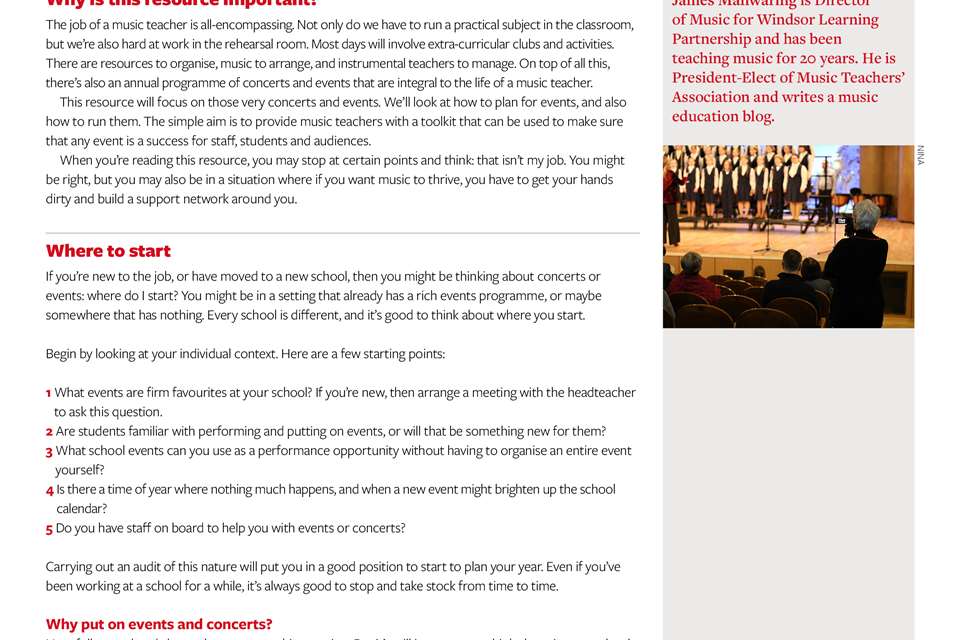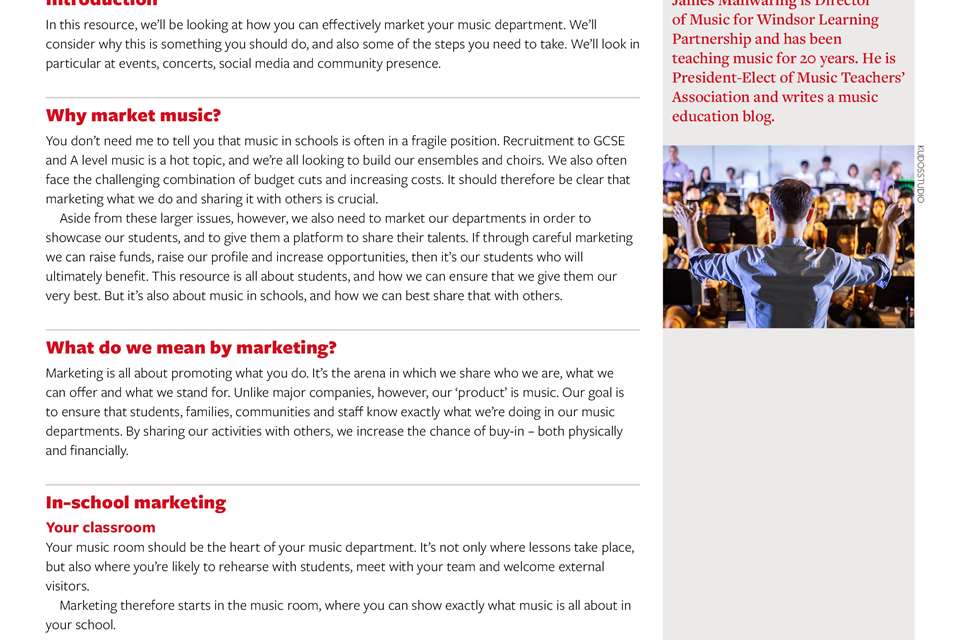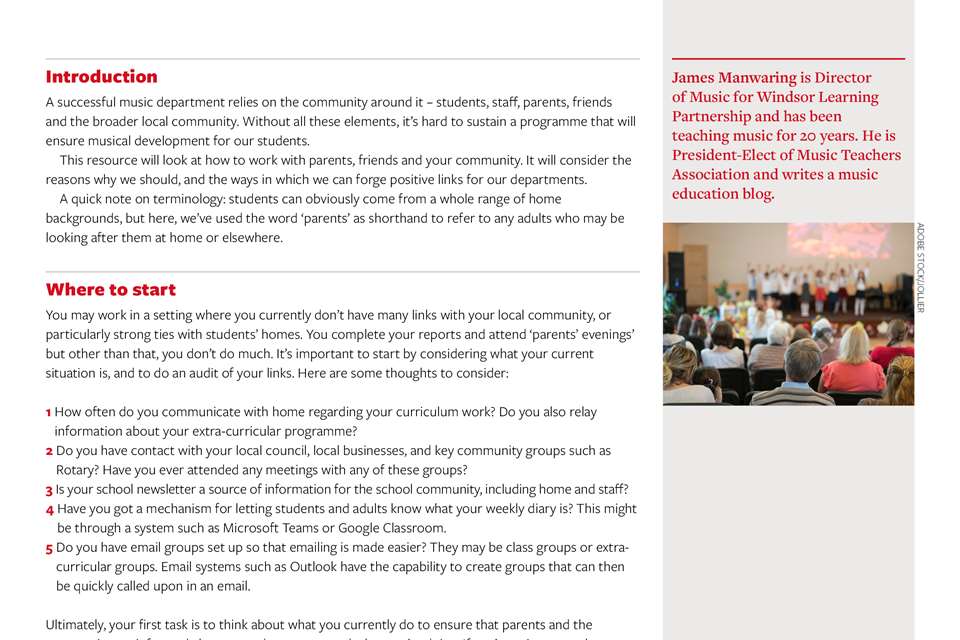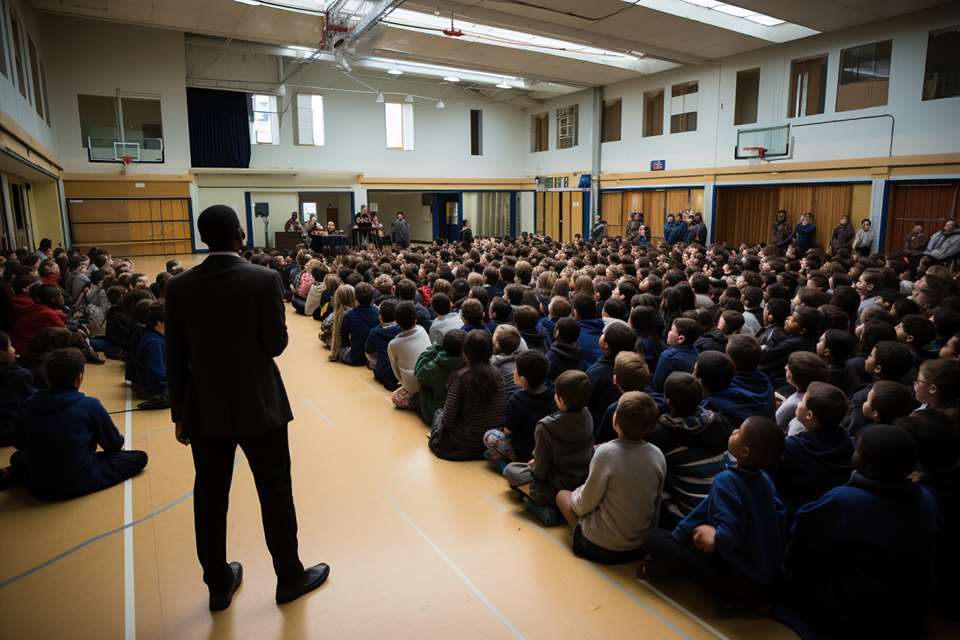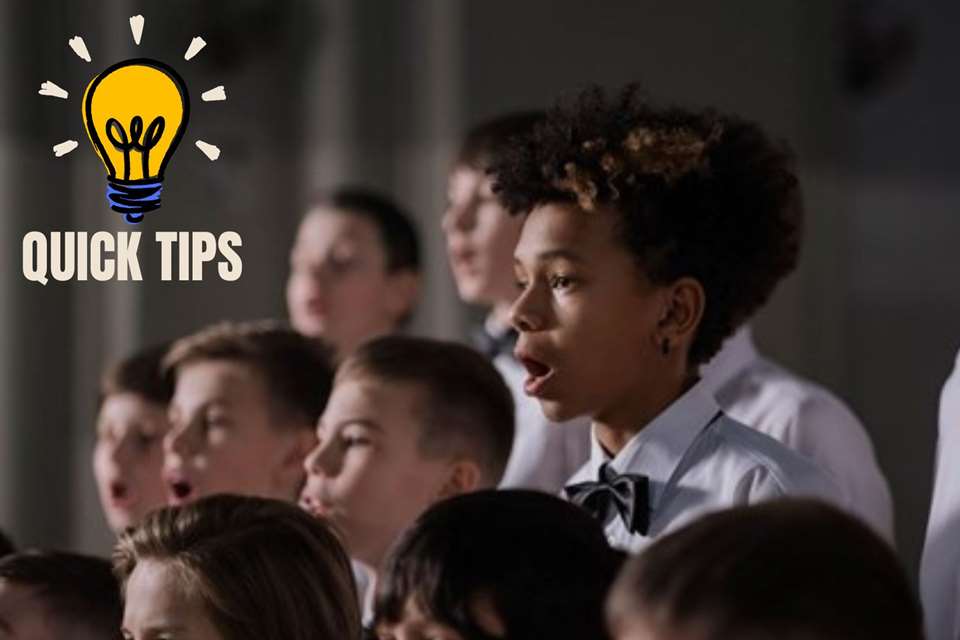Quick tips for school performances
James Manwaring
Sunday, October 1, 2023
James Manwaring, director of music for Windsor Learning Partnership, outlines key considerations and strategies for a successful event.

Get them in the calendar! Always make sure that your concerts and events are in the school calendar. Ensure that the students know when these are happening and keep mentioning dates in your emails and communications.
Tickets – make it professional. Even if you are not charging money for your performance, use tickets to add that professional touch. I use trybooking.co.uk and this can do free events or charged ones. I love seeing the ‘sales’ coming in and knowing how many seats to lay out.
Bar and raffle. A performance is a great way to raise extra funds for your department. A bar (preferably licensed) and a raffle are easy to organise, especially if you have a supportive parental body to run them.
Vary the content. The more variety in a concert, the better. This can mean different classes and ensembles but also varying the styles and genre. However, you can also have smaller-scale concerts dedicated to musical-theatre or solo recitals (including during lunchtimes), for example. Make sure that every student gets a platform to perform on – but make sure it’s appropriate for their level and ability.
Create an invitation list. When you put on a performance, you should think about who to invite – school governors, a local councillor or even the mayor/mayoress. Make sure that the community is aware of what your students are doing in school. Also make sure that you invite your head teacher, CEO, or SLT. Don’t assume they will come and remember that diaries also get booked up for evenings well in advance.
Consider all settings. While we all love large-scale productions, remember how some performances are in the background or for smaller audiences. Every chance to perform matters to students, and they develop just as well from busking at the local bandstand or performing at a community event.
Support school events. Providing music for open evening, parents’ evening or prize nights can become annual events that music students look forward to.
Plan your rehearsals. Concert day is often stressful, if getting music ready, laying out seats, organising the sound system and so forth. You therefore need a plan for when bands will sound-check and when soloists ‘check the mic’. Work that out in advance, and make sure that your colleagues are on board.
Get support from senior students. Senior students are a fantastic asset; they can work backstage, run the sound desk, even present and compere. Work with them in the run-up to the event and maybe let them organise something on their own. Students are great at taking rehearsals when you can’t make it!
Be ready to say ‘yes’. This one’s important. Music is always going to be at the heart of any event, whether local or national. People are always looking for music for their summer fayre, charity fundraiser or Christmas party. As a school you want to be ready to say ‘yes’ to performing carols at a local business or appearing at a big community event. As I said, every opportunity for your students (and for your department) matters. I’m not suggesting you say ‘yes’ to everything, but if you are ready, it means you can pick and choose from the very best opportunities.
Have you ‘quick tips’ on an area of teaching you’d like to share? Please email the editor at music.teacher@markallengroup.com


